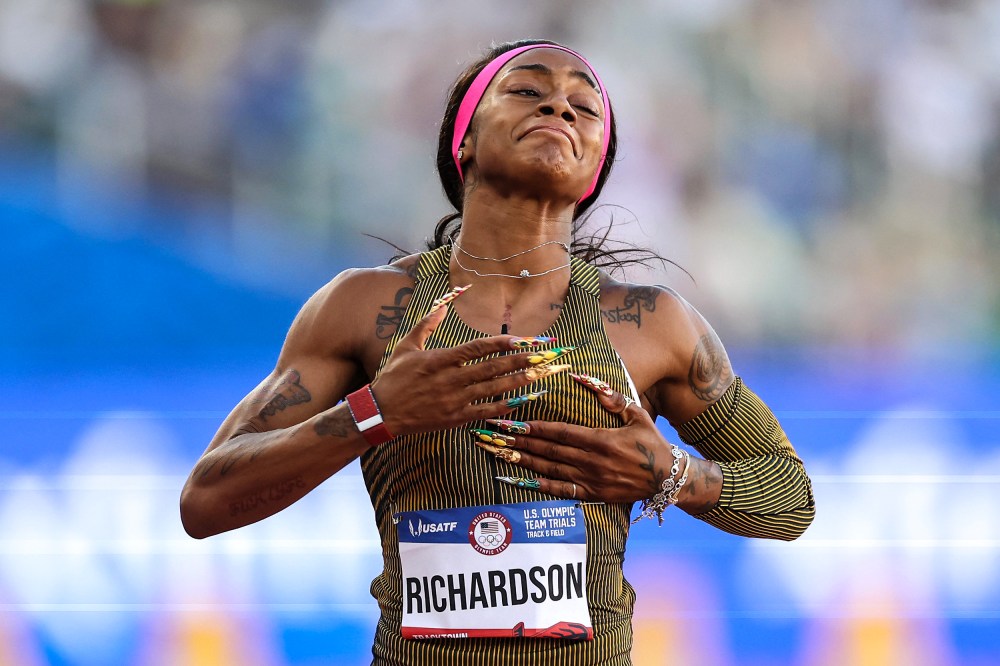As soon as she knew she’d done it, Sha’Carri Richardson put her hands to her chest and appeared to be near tears. Crossing the finish line first Saturday night in the final of the women’s 100 meters at the U.S. track and field Olympic qualifying meet was the moment Richardson had waited three years for, the moment so many young athletes dream of when they find their sport and decide to passionately pursue it.
Crossing the finish line first Saturday night in the final of the women’s 100 meters at the U.S. track and field Olympic qualifying meet was the moment Richardson had waited three years for.
Making it to the Olympics is undoubtedly special for everyone, as it is the culmination of years of practice and sacrifice, but it is even more special to qualify for the U.S. track and field team, the hardest to make in the world.
But Richardson’s response to winning Saturday night appeared to be more than her realization that she’d secured her ticket to Paris for the Summer Games that begin on July 26. It seemed to also be a response to the way she’d gained — and just as quickly lost — her berth in the Tokyo Games.
Richardson’s spot on that 2021 Olympic team was infamously and controversially stripped from her. After winning the 100 meters at the trials, she tested positive for THC, the primary compound found in cannabis, in a postrace drug test. Then 21, Richardson said she’d used marijuana to help her cope with the news that her biological mother had died, news conveyed to her by a reporter days before those trials began. (The Dallas native was raised primarily by a grandmother and an aunt.)

She accepted a one-month suspension, and while USA Track & Field, the sport’s governing body here, could have allowed her to run on the 4×100-meter relay in Tokyo (since it took place after her suspension ended), that didn’t happen.
Richardson’s suspension sparked a furious debate about whether the discipline was warranted given the growing acceptance of marijuana use and its legality in Oregon, where the Olympic trials are held. But all forms of cannabinoids (except cannabidiol) were, and still are, on the banned substances list of the World Anti-Doping Agency. All countries save three — Russia, North Korea and Gabon — are compliant with WADA’s anti-doping code.
The head of the U.S. Anti-Doping Agency was seemingly on Richardson’s side. CEO Travis Tygart said in a statement at the time, “The rules are clear, but this is heartbreaking on many levels.” Even President Joe Biden questioned whether it was time to re-evaluate the ban.
Even President Joe Biden questioned whether it was time to re-evaluate the ban.
For as much as Richardson’s suspension came off as an extreme overreaction to something that has become a cultural norm in the U.S. and as an unwarranted punishment for a young woman experiencing personal turmoil, there were many who effectively shrugged and said Richardson knew the rule before she broke it and so she deserved what she got.
WADA was never going to ease its rule for Richardson no matter who had questioned it. But the maximum punishment for a failed THC test is multiple years. The minimum is the one-month ban Richardson received. So it could have been worse.
Still, days after Richardson’s suspension, USADA said it wanted more flexible rules for athletes who test positive for cannabis. WADA resisted then and continues to resist today.












